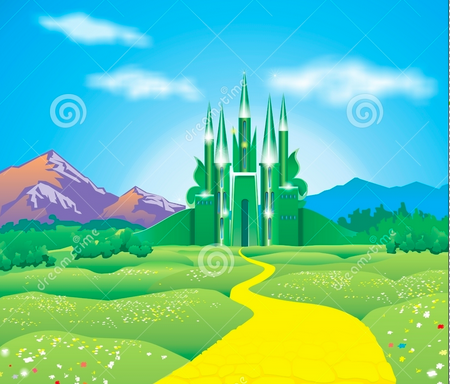The Wizards of Menlo Park
Whenever we notice a preponderance of attention being paid to one aspect of tech – lately, how the platforms and devices are rewiring our brains and mental states- we assume that that’s where the chorus wants us. We’re always more interested in what they don’t want us to notice.
Much.
Twitter has been shadow banning conservative voices. According to Project Veritas, they’ve literally written algorithms that censor opposing political opinions. Former Twitter software engineer Abhinav Vadrevu defines shadow banning: “they just think that no one is engaging with their content, when in reality, no one is seeing it.” Said Former Twitter Content Review Agent Mo Norai when asked if the banning process was an unwritten rule, he said, “Very. A lot of unwritten rules… It was never written it was more said.”
Typical wizard behavior: now you see it – now you don’t, aka, plausible deniability.
Add to that the fact that Google’s New Fact-Check Feature Almost Exclusively Targets Conservative Sites – what to speak of the fact that YouTube also has a policy of demonetizing channels that they feel aren’t ‘advertiser-friendly’ – with YouTube/Google as judge and jury – to the point where they are affecting the livelihoods of popular content creators, without offering the provider any recourse.
Who’s Next?
Agree with them or not, for all we know, censoring conservative voices may be merely the first use case for skewing the algorithms: who or what’s next on the list? Women who get a bit too vocal, perhaps? After all, how many years and instances of abuse did it take a concept like #MeToo to surface?
Forest through the trees: these are platforms that are so embedded into our society, that they’ve become part of the zeitgeist, and the patois itself: we tweet, we google. They may be too big to fail, but that does not make them untouchable.
The original Wizard of Menlo Park was Thomas Edison, who gave us electricity, or certainly made it much more readily available, and which was, in his lifetime, designated a public utility, which Wikipedia describes as following: “In the United States, public utilities are often natural monopolies because the infrastructure required to produce and deliver a product such as electricity or water is very expensive to build and maintain.”
As John Hawkins points out in Town Hall, “Social media IS the new public square. It’s the place you go when you want to reach out and find an audience.” Or if you need to google something. They’re very much ingrained in our everyday lives.
The Road to ‘Public Utility’
While Facebook and many of the top Silicon Valley VCs/enablers are based in that other Menlo Park, we use the term more broadly here to embrace the tech cartel, who would be wise to heed lessons learned from that original Wizard. Specifically, that despite the many patents he held, because it did become ubiquitous in American life, electricity became classified as a public utility. What to speak of the fact that, despite his many patents and contributions, Thomas Edison did not acquire nearly the wealth over his entire lifetime that any one member of the tech cartel has managed to amass in a relative few short years.
While we’re not ordinarily huge supporters of government intervention or regulation, like the telephone and electricity before it, the tech cartel has created monopolies in their various verticals – including Facebook, Twitter, Google, Amazon – to the point where they are ubiquitous in our lives. Given their general ‘Ask forgiveness, not permission’ mantra that has been pro forma in the way that they do business, they’ve clearly been exercising an abuse of power – and are only getting even more egregious, (How Conservatives Are Being Destroyed by Facebook, Twitter and Google Without Even Realizing It).
Regulate or Be Regulated
Pressure is certainly there for the tech industry to start regulating itself – and adhering to the laws of the land. Diane Feinstein warned back in October that “You are going to have to do something… or else we will,” and this just in: Supreme Court to Consider Internet Sales Tax Collection. According to the piece, the court said “it would consider whether states can broadly require online retailers to collect sales taxes even if they lack a physical presence in the state, a case that could have a major impact on online commerce.” We no longer live in the days of the mail-order catalog. Tech has changed the landscape, and the entire social fabric.
The times they are a-changing and, speaking of wizards, heads up and make no mistake about it: someone is finally paying attention to those men behind the curtain. Onward and forward.
